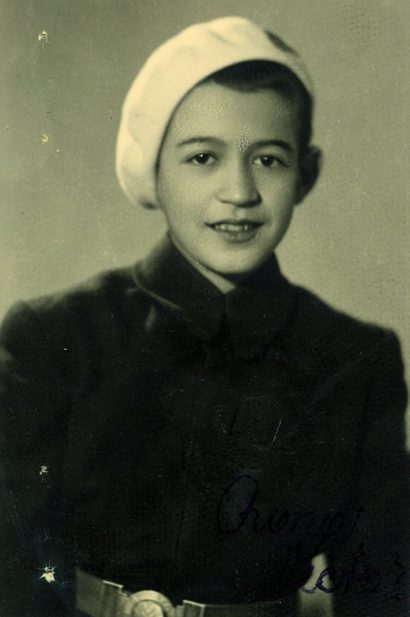Viktor Róna
December 26, 1928 – April 28, 1945
![]()
Viktor Róna, early 1940s (Yad Vashem, Jerusalem)
Twice interned at Flossenbürg
Viktor Róna came from the Romanian town of Satu Mare, which was transferred to Hungary in 1940. His father taught German at the high school until he was fired on “racial” grounds. The family spoke German at home.
After the March 1944 invasion of Hungary, the Nazis began to persecute the Jews systematically. Viktor Róna was forced to wear the Jewish Star of David during his final examinations. On May 30, his entire family was deported from the Jewish ghetto to Auschwitz-Birkenau. Immediately after their arrival, Viktor’s mother was killed in the gas chambers.
In June 1944, Viktor, his brother Erwin, and his father Alexander arrived at the Groß-Rosen subcamp of Oberwüstegiersdorf in Silesia. At the camp, they were forced to build underground tunnels. In February 1945, the SS first transported them to Flossenbürg and then forced them to march to Ohrdruf, a subcamp of Buchenwald. Two months later, Alexander, Viktor and Erwin Róna were forced on a death march, first towards Buchenwald and then onward to return to Flossenbürg. The SS shot Alexander Róna before his sons’ eyes, and seriously injured Viktor and Erwin with bayonets.
Shortly after liberation, Viktor Róna died of his wounds. He was fifteen years old. Erwin Róna was the only member of his family to survive.
